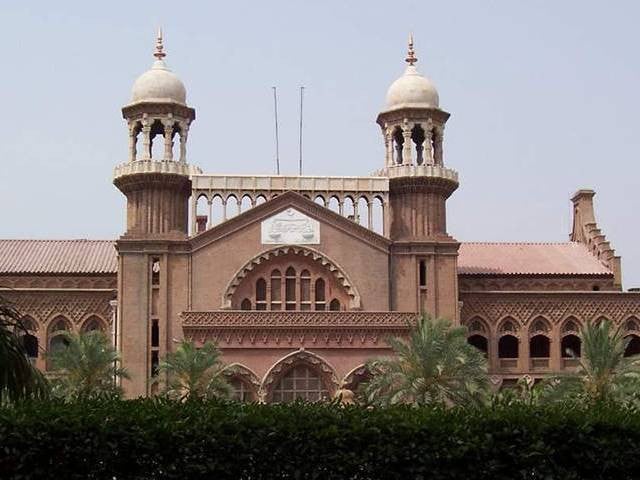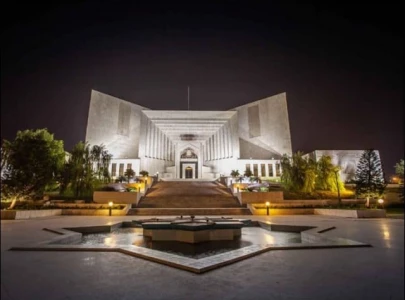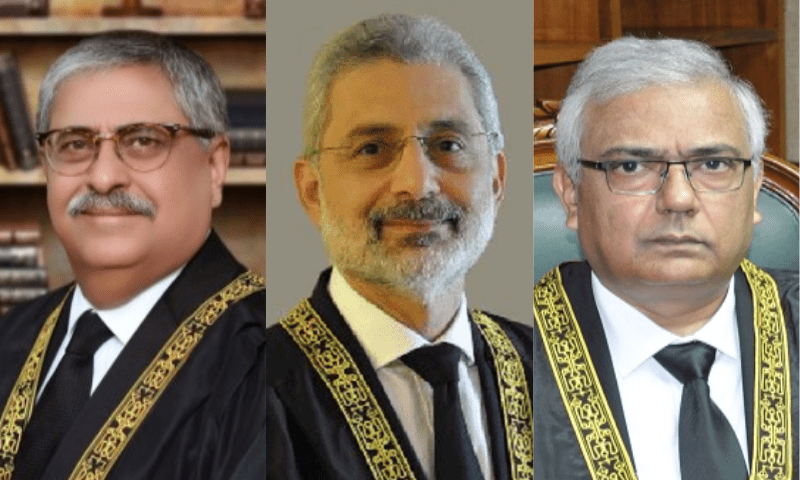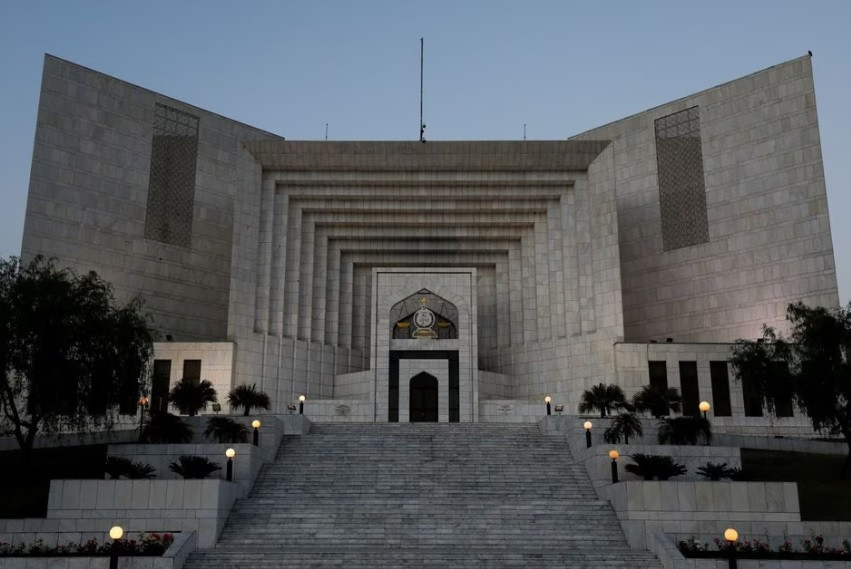ghazi52
PDF THINK TANK: ANALYST

- Joined
- Mar 21, 2007
- Messages
- 101,792
- Reaction score
- 106
- Country
- Location
,.,.,.,
Rana Yasif
August 25, 2023
The Punjab government informed the Lahore High Court (LHC) on Friday that no rules or laws exist that allow visitation rights for those individuals in the custody of the armed forces.
The statement was given by Additional Advocate General Ghulam Sarwar Nihung in the court of Justice Sultan Tanvir during the hearing of a petition filed by columnist Hafeezullah Khan Niazi seeking permission to meet his son, Barrister Hassan Khan Niazi.
The additional advocate general further argued that police or prison rules are not applicable to those held in the custody of the armed forces. However, he said, an application can be submitted before the concerned quarters requesting a meeting, and it can be accommodated depending on the sensitivity of the case.
Justice Sultan Tanvir sought further arguments from the lawyers on the aforementioned petition by the next date of the hearing.
Hafeezullah Khan Niazi, in his petition, had also sought his son’s recovery as well as the initiation of an inquiry against those responsible officials allegedly involved in detaining Hassan Niazi.
During the proceedings today, Justice Tanvir asked law officer Nihung for an update on the meeting between the petitioner and detenue.
Nihung informed the court that such cases are also pending before the Supreme Court of Pakistan, hence the petitioner is advised to approach the country’s top court.
The petitioner’s counsel, Ishtiaq A. Khan, told the court that the assurance given by the attorney general of Pakistan in the apex court was violated and added the no meeting was allowed despite the assurance.
At this, Justice Sultan Tavnir asked whether that assurance was confined merely to the 102 arrested people. Responding to the judge's query, advocate Khan implored the court that the Supreme Court’s order was relevant to all who were in the custody of the military.
He further argued that the court has the power to direct the concerned quarters to allow a meeting between the arrested and the petitioners.
The advocate further informed the court that the country’s top court was told that no journalist or lawyer is in the army’s custody, but 'the truth is that journalist Imran Riaz Khan and Barrister Hassan Niazi are in the army’s custody'.
"The Army Act could not usurp the rights given to the citizens in the Constitution," he told the court.
Giving an example, he asked if Indian spy Kulbhushan Jadhav's family could be allowed to meet him then why were the families of the journalist or the lawyer not being allowed.
On a point, the law officer told the court that the matter of trial under the Army Act is pending before the SC. The matter of whether those who are under army’s custody could be allowed to meet anyone came before the apex court and a decision is pending.

 tribune.com.pk
tribune.com.pk
Detainees in military custody have no visitation rights, AAG informs LHC
Law officer informs court rules, laws do not exist for visitation rights for those detained by militaryRana Yasif
August 25, 2023
The Punjab government informed the Lahore High Court (LHC) on Friday that no rules or laws exist that allow visitation rights for those individuals in the custody of the armed forces.
The statement was given by Additional Advocate General Ghulam Sarwar Nihung in the court of Justice Sultan Tanvir during the hearing of a petition filed by columnist Hafeezullah Khan Niazi seeking permission to meet his son, Barrister Hassan Khan Niazi.
The additional advocate general further argued that police or prison rules are not applicable to those held in the custody of the armed forces. However, he said, an application can be submitted before the concerned quarters requesting a meeting, and it can be accommodated depending on the sensitivity of the case.
Justice Sultan Tanvir sought further arguments from the lawyers on the aforementioned petition by the next date of the hearing.
Hafeezullah Khan Niazi, in his petition, had also sought his son’s recovery as well as the initiation of an inquiry against those responsible officials allegedly involved in detaining Hassan Niazi.
During the proceedings today, Justice Tanvir asked law officer Nihung for an update on the meeting between the petitioner and detenue.
Nihung informed the court that such cases are also pending before the Supreme Court of Pakistan, hence the petitioner is advised to approach the country’s top court.
The petitioner’s counsel, Ishtiaq A. Khan, told the court that the assurance given by the attorney general of Pakistan in the apex court was violated and added the no meeting was allowed despite the assurance.
At this, Justice Sultan Tavnir asked whether that assurance was confined merely to the 102 arrested people. Responding to the judge's query, advocate Khan implored the court that the Supreme Court’s order was relevant to all who were in the custody of the military.
He further argued that the court has the power to direct the concerned quarters to allow a meeting between the arrested and the petitioners.
The advocate further informed the court that the country’s top court was told that no journalist or lawyer is in the army’s custody, but 'the truth is that journalist Imran Riaz Khan and Barrister Hassan Niazi are in the army’s custody'.
"The Army Act could not usurp the rights given to the citizens in the Constitution," he told the court.
Giving an example, he asked if Indian spy Kulbhushan Jadhav's family could be allowed to meet him then why were the families of the journalist or the lawyer not being allowed.
On a point, the law officer told the court that the matter of trial under the Army Act is pending before the SC. The matter of whether those who are under army’s custody could be allowed to meet anyone came before the apex court and a decision is pending.

'Detainees in military custody have no visitation rights' | The Express Tribune
Law officer informs court rules, laws do not exist for visitation rights for those detained by military



